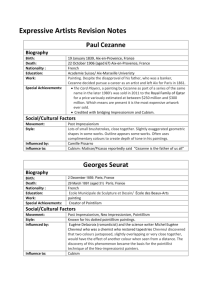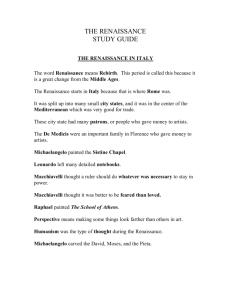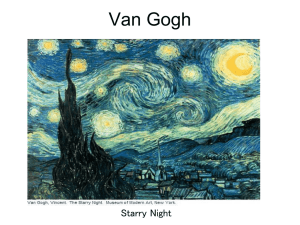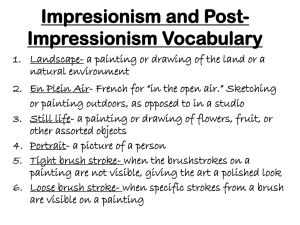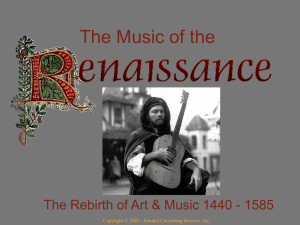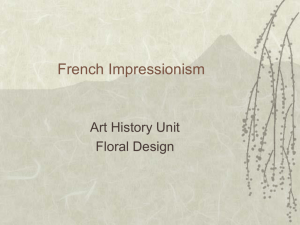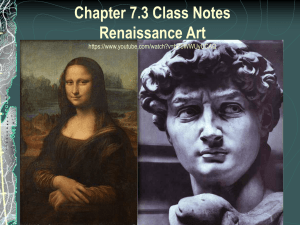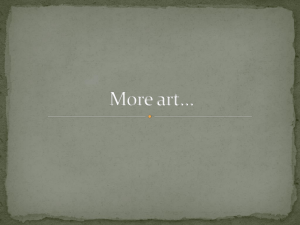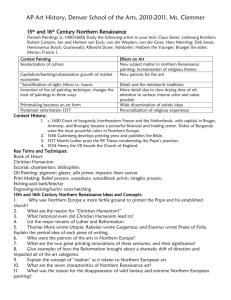School Of Art Project
advertisement
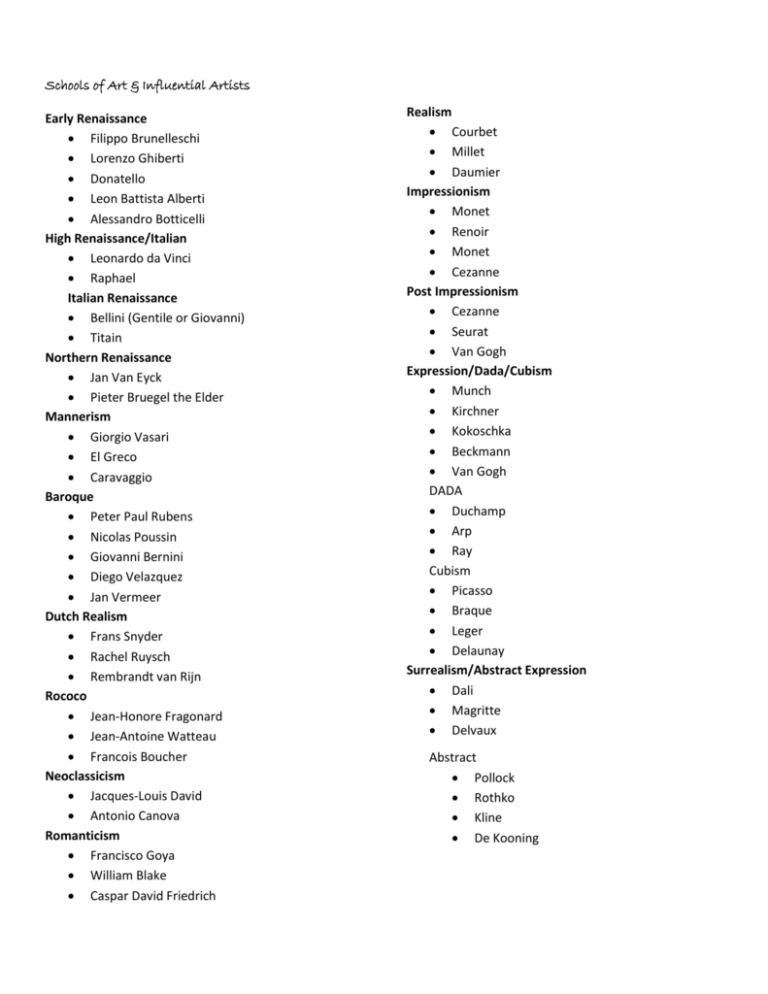
Schools of Art & Influential Artists Early Renaissance Filippo Brunelleschi Lorenzo Ghiberti Donatello Leon Battista Alberti Alessandro Botticelli High Renaissance/Italian Leonardo da Vinci Raphael Italian Renaissance Bellini (Gentile or Giovanni) Titain Northern Renaissance Jan Van Eyck Pieter Bruegel the Elder Mannerism Giorgio Vasari El Greco Caravaggio Baroque Peter Paul Rubens Nicolas Poussin Giovanni Bernini Diego Velazquez Jan Vermeer Dutch Realism Frans Snyder Rachel Ruysch Rembrandt van Rijn Rococo Jean-Honore Fragonard Jean-Antoine Watteau Francois Boucher Neoclassicism Jacques-Louis David Antonio Canova Romanticism Francisco Goya William Blake Caspar David Friedrich Realism Courbet Millet Daumier Impressionism Monet Renoir Monet Cezanne Post Impressionism Cezanne Seurat Van Gogh Expression/Dada/Cubism Munch Kirchner Kokoschka Beckmann Van Gogh DADA Duchamp Arp Ray Cubism Picasso Braque Leger Delaunay Surrealism/Abstract Expression Dali Magritte Delvaux Abstract Pollock Rothko Kline De Kooning AP European History Art through History Project “Art is the stored honey of the human soul…” Objective: ~Theodore Dreiser Throughout the year we have looked at and read about the many different eras in European art and how they responded to and reflected the events that were occurring at the time. For your project, you will work in groups of 2-3. Your group will pick a school of art and follow the requirements. Each group will present their school of art to the class in order on Friday, May 1st. Presentation: Critical evaluation related to your topic is just as important as the facts. Think about the significance of the arts – the whys and connections to other events, past and present, etc. You are now the historian. Remember the who, what, where, when, and why. As we move through the various units, compare and contrast to previous periods. Discuss the significance of the arts to the time period and how art changed over the time period if appropriate. Use primary sources as well as secondary sources in order to form your own interpretation of the topic. At no time should your project be taken from a single source. In essence, synthesize a variety of materials in order to come up with your own interpretation or thesis about the arts (credit sources – your ideas or others). Use specific information to support your generalizations. Project Specifics: 1. 2. 3. 4. 5. Select a school of art and an artist Research your selection Select a few pieces of work (painting, sculpture, building) from the artist selected Construct a PowerPoint, Prezi, Display board, etc. Please print the works of art that you will be discussing for the time period. Make sure to have all pieces on one page for easy printing. 6. Present information to class 7. If possible, attempt to involve the class in your project (i.e. questions, brief activity, etc.) Make sure to include the following in your presentation: Themes – general description of art movement/period Time Period Major Characteristics Areas of Influence: Prominent Artists including their famous works/notable features o Make sure you are able to describe specific characteristics from the timer period in the art pieces. Project Grading: Project grades will be based on your understanding and evaluation of the material as well as the quality of the presentation. Please be prepared and ready to present your topic. Have fun with this project and enjoy becoming an expert! Please print 1 rubric per group for a presentation grade. You will also be given audience accountability grade. Note Taking Set Up: AP European History Art Period:____________________________________ General Description of Art Movement/Period Major Characteristics: Presenter Name(s): Approximate Time Period: _____________________ Art Through History PARTNER PRESENTATION Names: _________________________________________________________________________ Topic: __________________________________________________________________________ 1. Use of Time: 1 2 3 4 5 ______/5 2. Effort: 1 2 3 4 5 ______/5 3 4 5 6 7 3. Handout: 1 2 4. Presentation Content: School of Art/Time Period Themes Characteristics Areas of Influence Prominent Artists/works 1 2 3 4 5 8 9 10 ______/10 9 10 ______/10 _________ _________ _________ _________ _________ 6 7 8 X2.5 = ______/25 5. Analysis: 1 Key: 5 (9-10) – Distinguished 4 (7-8) – Proficient 3 (5-6) – Satisfactory 0-2 (0-4) – Needs Improvement 2 3 4 5 ______/5 Total: ________/ 50 points
